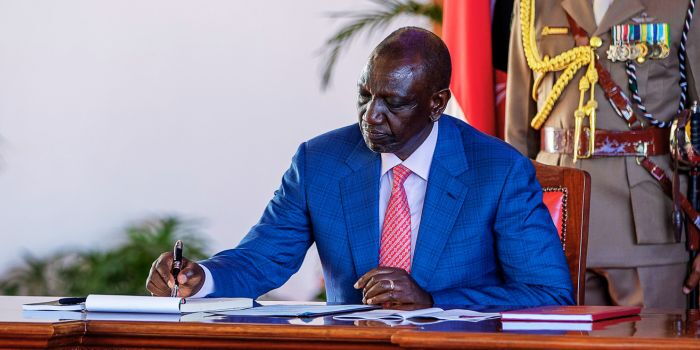President William Ruto has declined to sign the Conflict of Interest Bill 2025 into law, instead returning it to Parliament with recommendations for stronger provisions on integrity and anti-corruption.
The proposed legislation is one of the key governance reforms tied to Kenya's ongoing negotiations with the World Bank, which has made the bill a condition for the disbursement of additional loans and development funding. Treasury Cabinet Secretary John Mbadi previously confirmed that the World Bank’s support was contingent upon the bill’s enactment.
In a statement issued by State House on Thursday, Ruto emphasized his administration’s commitment to transparency and accountability, stating that he would not approve a law that failed to meet high standards in the fight against graft.
"While the Bill substantially addressed the issue of conflict of interest, the President determined that further enhancement is required to meet the constitutional values of good governance and integrity," read part of the statement.
Citing Article 115 of the Constitution, Ruto sent the bill back to Parliament with a memorandum outlining the proposed amendments.
The delay in assenting to the bill could have economic consequences, as it may impact the timeline of World Bank disbursements. Mbadi told Parliament on April 16 that a Ksh78 billion loan facility from the World Bank is expected in June 2025, pending resolution of the legislative requirement. Additionally, another Ksh34.3 billion (USD 265 million) is anticipated within the next week.
Despite the financial implications, Ruto maintained that the fight against corruption must take precedence.
The president’s decision underscores a broader effort to uphold public trust and ensure that any legislation governing ethical conduct in public service is sufficiently robust to prevent abuse and promote good governance.

